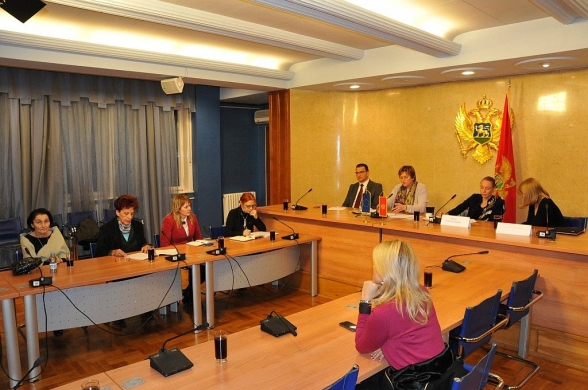At the 20th meeting of the Gender Equality Committee, held on 26 November 2013, a member of the European Parliament Marije Cornelissen presented the Report on Women’s Rights in the Western Balkans.
The purpose of the Report is to point out the mechanisms for implementation in the accession countries, instead of listing general problems with regard to women’s rights and gender equality. The primary goal is to extend actual calls to the countries to adapt the laws, policies and budgets and/or institutional frameworks, making them country-specific instead of general observations on the region as a whole, which is justified by different stages of the accession process that these countries are in. The measures are listed for each country separately, and apart from the general principles, special remarks are highlighted with regard to harmonisation of legislation with the EU acquis in the field of equality and other instruments, action plans and strategies of the government, the parliament and the independent bodies, work of the law enforcement and judiciary, budget aspects and cooperation with civil society.
In the report on Montenegro, the introduction of measures for achieving gender equality into the reform programme of Montenegro on its path to the EU was welcomed, as well as the efforts made by the Parliament of Montenegro to methodically investigate the implementation of legislation in the field of equality. A part of the report also mentioned that the percentage of women in the political decision-making had not increased significantly in the past several decades, and therefore the Government was urged to reform the legislation in this field and provide its observation, and the following was requested: the increase of human and financial resources for Department for Gender Equality Affairs, the implementation of the legal and institutional framework for enforcing gender equality and the Activity Plan for achieving gender equality. The progress achieved in combating domestic violence was noted, but also the fact that it still represented a significant problem in Montenegro, due to which additional efforts needed to be made in order to implement relevant legislation and Protocol on Conduct, and also to launch a national helpline, as well as a unique database on cases of violence against women.
During the discussion they exchanged opinions on certain issues and pointed out that promotion of the principles of gender equality was a key part of the process, not only because women made up half of population in the accession countries, but because gender equality was one of the key values of the EU, stipulated in the Treaty on European Union.









